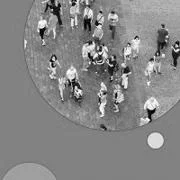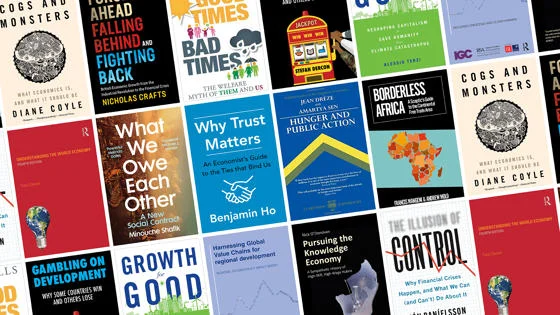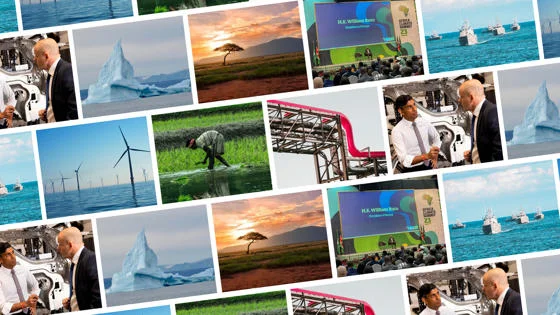Recommended reading on AI and technology

Contents
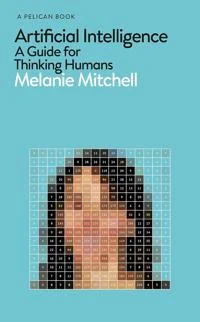
Artificial Intelligence: a guide for thinking humans. Melanie Mitchell. Pelican. 2019.
Given the seismic changes introduced by generative AI in the past couple of years, this book may appear somewhat dated. Nevertheless, it offers an excellent historical overview of the field by a prominent frontline participant. In fact, the juxtaposition between deep learning and abstract and analogical reasoning that the book ends with is particularly poignant today, highlighting the natural limits of the currently dominant AI paradigm.

Algorithms to Live By: the computer science of human decisions. Brian Christian and Tom Griffiths. Henry Holt and Company. 2016.
Written in an expertly accessible style, this book provides an intuitive introduction to the fundamental algorithms guiding much of optimisation and automatic decision-making today. The authors emphasise links and parallels between human and algorithmic thinking, leaving the reader both admiring the unintentional robotic perfection of many human and social behaviours and anticipating a familiar, human-like intelligence from machines in the future.

The Complete Robot. Isaac Asimov. HarperCollins. 1982.
This is a nearly complete collection of Isaac Asimov’s short stories about robots. Most of these stories revolve around "AI alignment" problems – situations where robots go rogue and act against human’s’ values and goals. What is most notable about the situations Asimov describes is that the robots misbehave not because they violate the three laws of robotics, but because they stick to the letter of these laws. But do not worry – Susan Calvin, the cold and stern robopsychologist who has trouble understanding and interacting with fellow humans, will be there to analyse and outsmart the machines!
Recommended by Milena Tsvetkova, Associate Professor of Computational Social Science, Department of Methodology at LSE

Feeding the Machine: the hidden human labour powering AI. James Muldoon, Mark Graham and Callum Cant. Canongate. 2024.
We might think of AI as something we do on our computers, with little regard to the actual infrastructure – both physical and human – that underpins it. This book explores the AI ecosystem, exposing its exploitative underbelly. Based on extensive interviews, it presents a number of profiles of individuals involved: for example, an underpaid data annotator in East Africa, a data centre engineer in Iceland, a voice artist whose voice (and work) has been "stolen", and a highly-paid data scientist living a sophisticated city life.
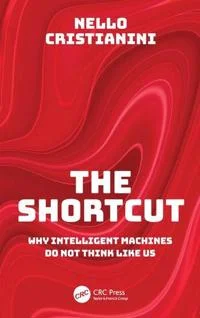
The Shortcut: why intelligent machines do not think like us. Nello Cristianini. CRC Press. 2023.
Concisely written, but with a wide scope, this is a very thoughtful book from a leading AI researcher. It discusses the development of AI and its possible future, limitations and challenges. The "shortcut" referred to in the title is the methodological switch from logical symbolic methods to those based on statistics and probability which make use of huge datasets and computing power.
Recommended by Martin Anthony, Director of LSE Data Science Institute and Professor of Mathematics, Department of Mathematics at LSE

Feminist AI: critical perspectives on data, algorithms and intelligent machines. Jude Browne et al (editors). Oxford University Press. 2023.
Recent years have seen both an explosion in AI systems and a corresponding rise in critical analyses of such technologies. Feminist scholarship has been central to this critique, showing the ways that the design and deployment of AI can further, rather than undermine, the pursuit of social justice. This excellent anthology persuasively demonstrates why AI is a feminist issue.
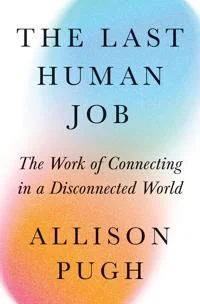
The Last Human Job: the work of connecting in a disconnected world. Alison Pugh. Princeton University Press. 2024.
This insightful and meticulously researched book makes a compelling case that the "connective labour" or socioemotional skills increasingly important to millions of jobs, both old and new, are at risk of being lost with the automation of jobs. Pugh argues that we need to protect this vital humane work and the face-to-face interactions that are so essential to our wellbeing. The book is a refreshing challenge to the promissory discourse about AI being able to replicate and even surpass human capacities/capabilities.
Recommended by Judy Wajcman, Professor Emeritus, Department of Sociology at LSE, and Fellow at the The Alan Turing Institute
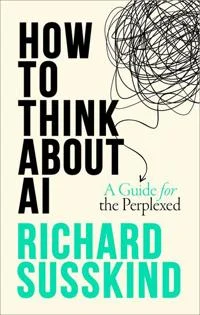
How to Think About AI: a guide for the perplexed. Richard Susskind. Oxford University Press. 2025.
This book by Richard Susskind, the well-known futurologist who has written about the future of professions, lawyers and courts, is the perfect introduction for someone new to the subject of AI and its challenges. Susskind writes about AI in an instantly accessible way and focuses not on how AI functions but on what it does in terms of its societal impact. He shows how AI is likely to change our lives in the future and asks us to think whether we are ready to meet that challenge.

Weapons of Math Destruction. Cathy O’Neil. Penguin. 2016.
This is not strictly a book about AI but rather one about the lakes of big data which are the fuel of modern AI. O’Neil examines how data extracted from these data lakes may be used to make algorithmic decisions about you, and how bias, error or the mistakes made in selecting proxy data can impact our lives. It’s a book that gets "under the hood" of how AI works.
Recommended by Andrew Murray, Professor of Law, LSE Law School

AI 2041: ten visions for our future. Kai-Fu Lee and Chen Qiufan. W H Allen. 2024.
AI 2041 presents insightful, narrative-driven scenarios that illuminate the societal and ethical implications of AI, encouraging critical reflection on its near-future impact.
Recommended by Mikhail Burtsev, Visiting Fellow, Department of Psychological and Behavioural Science at LSE

Generative AI in Education: digital pedagogies, teaching innovation and learning design. B Mairéad Pratschke. Springer. 2024.
In Generative AI in Education, B Mairéad Pratschke offers a timely and practical guide for educators to the role of AI in learning innovation. She takes a critical, theory-based perspective and presents it in a practical and accessible way. After introducing the reader to AI and digital education, the book offers practical strategies for educators to begin their teaching innovation journey with generative AI (GAI). Taking a constructive and forward-looking perspective, Pratschke encourages educators to rethink traditional teaching and assessment methods and co-design more interactive, personalised and innovative learning approaches that equip students with the skills they need in the AI age.
Recommended by Dorottya Sallai, Associate Professor (Education) of Management, Department of Management at LSE
Thanks to the LSE staff who helped with putting together this reading list, which was compiled by Anna D’Alton, Managing Editor of LSE Review of Books.
AI, technology and society special edition
At LSE our researchers are using technology’s revolutionary power to understand our world better, looking at AI and technology’s potential to do good, and limiting its potential to do harm.
Browse upcoming events, short films, articles and blogs on AI, technology and society on our dedicated hub.
Join us on campus or online wherever you are in the world for LSE Festival: Visions of the Future, a week of special events 16-21 June 2025, free and open to all.
The London School of Economics and Political Science (LSE) is a world-leading university, specialising in social sciences and named University of the Year by the Good University Guide 2025. Based in the heart of London, we are a global community of people and ideas that transform the world.

